Shari Wilkes has no photo albums. She has no pots and pans, no favorite handbag or set of stationary. No fleece throws for the couch, no tchotchkes, houseplants or fancy dinner dishes. No little box of buttons and safety pins and paper clips collected over the years and kept in a convenient drawer. Wilkes, 50, just got out of prison, and in the three years and 11 months she was there, like many semblances of her former life, her things are gone.
She says she lost everything after her arrest and ensuing incarceration. Long divorced and not a homeowner, she had been storing her furniture and belongings at a friend’s house, but “four years is a long time.”
The details of her crime involve stolen goods from a pawn shop, something she’d rather not discuss. What sent the Miami native and former preschool teacher to the Homestead Correctional Institution in Florida City, Fla., in October of 2012 was the result of a series of bad decisions, she says, and a lifestyle she’d rather leave behind.
She will, however, talk about the past when it comes to her daughter, now 30, as well as Wilkes’ large extended (and supportive) family in South Florida, where she is currently living to be near them. She’ll talk about growing up in an active Jewish household, with warm memories and traditions, and the resurgence of Judaism and practice in her life that began on day one in prison. She’ll talk about the rabbis who visited her. And she will describe her time in prison—the days on end, the pros and cons, the effect it had on her and the good that came out of it.
“I am a better me than when I went in,” says Wilkes. “I learned so much and met some wonderful people. You don’t realize what you get from people sometimes.”
It’s not lost on her that the timing of her release, March 7, fell just weeks before the Jewish holiday that celebrates freedom, something she grappled with day after day behind bars. “I am looking forward to the future, to the Passover message. I understand the meaning of freedom like never before.”
Still, she adds: “You can be free no matter where you are—and you can be imprisoned. It’s all in your state of mind.”
‘Like a Little Family’
That first day in prison was admittedly rough.
“I got there on a Tuesday,” Wilkes recalls clearly. “I walked into the compound and was shell-shocked. For the first 30 days, I couldn’t sleep; I was in shock.”
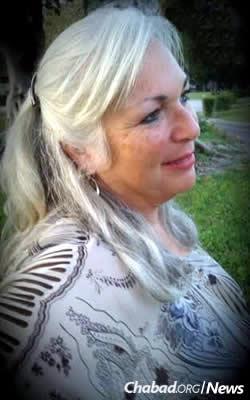
But Tuesday at Homestead has its privileges: A rabbi would visit. And on the very day that Wilkes arrived in prison, Rabbi Yossi Harlig, co-director of the Chabad Center of Kendall & Pinecrest in Miami, was there spending time with inmates.
“I was not in the compound three hours when I saw a rabbi there. I was like a kid with a blanket. Who knew rabbis went to prisons? At that moment, I realized I could do this.”
She would get through it. And the rabbis associated with the Aleph Institute would help her.
The Florida-based Aleph Institute was founded in 1981 at the direction of the Rebbe—Rabbi Menachem M. Schneerson, of righteous memory—to provide for the spiritual and physical needs of Jewish soldiers and prisoners, and their families, throughout the United States.
After she noticed the rabbi, Wilkes remembers seeing a woman wearing a Jewish star. “I approached her, and she took me to meet the group. There were about 12 to 15 women at any given time who were part of a Jewish group, a sisterhood of sorts. We met in a room on Tuesdays to talk—the same day we received visits from volunteers from Chabad.”
(Women from The Shul of Bal Harbour in Surfside, Fla., she notes, visited twice a month. They also brought Wilkes some essential items upon her release from prison—toiletries, sheets, towels, even clothes.)

The group was also allowed in the room—a chapel area they dubbed “The Jew Room”—on Fridays evenings, where they would light Shabbat candles, have grape juice and challah, and hold a little service. The items were brought in by Aleph—namely, by program director Rabbi Menachem Katz, who Wilkes says provided them with packages on Jewish holidays, made sure there were kosher items at the prison canteen they could purchase, and more recently, worked to get them access to kosher food as part of an “RDP,” a religious diet plan. He also regularly visited and counseled them.
(There are about 250 Jewish women in prison in the United States, with about 50 in Florida alone, according to the rabbi.)
“It’s amazing how much one person can accomplish,” she says, crediting much to Katz. “There are not enough superlatives to describe him.”
Wilkes says the women there “were like a little family. We drew strength from each other. On those two days, we didn’t feel like we were in prison. We had a door we could shut. We talked about peer pressure, how to make decisions—conversations basic to where we were.”

Though she grew up in a Jewish home in a Jewish neighborhood, lighting Shabbat candles, celebrating holidays and walking to synagogue, often with her father, Wilkes says she “learned a lot about the true meaning of Judaism in prison.”
‘A Stop on the Way’
What was it like, day in and day out?
Wilkes cites copious rules and restrictions, stereotypical starchy food and plain old boredom, which she tried to counter with exercise and activities. She says classes took place every day, and she made the most of them, leaving, she notes, with 23 certificates. She took two correspondence courses: “Kosher for the Clueless” and “Bible for the Clueless.” She studied Torah with her group. There were chores to be done.
Even though she felt it was a “Jewish-friendly compound,” she acknowledges animosity with other prisoners, who felt her group received privileges they did not. She admits to being afraid. “There were people you’d try to avoid. Other inmates were jealous. I had never been in a fight in my life, and I tried to keep it that way. There was prejudice. We felt hated.”
Her daughter sent her some money each month for extras from the canteen, and family members occasionally visited, including her brother. Unlike some of the “lifers,” Wilkes says she took comfort in knowing that she had a release date. “For me, it was a stop on the way. How could I complain? Some women were never getting out.”
The worst part? Missing her daughter’s wedding in October.
The best part? The people she met, who she says she thinks about every day. “When I light my Shabbat candles, mentally, I am there with them. I cried the last day because of those I left behind.”
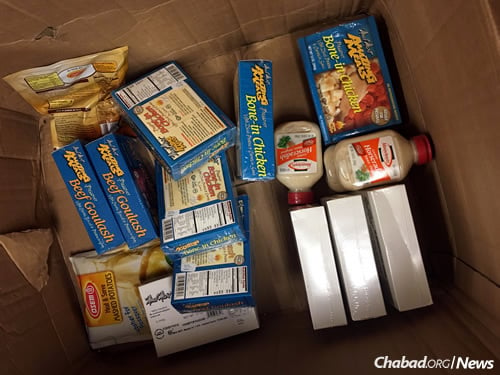
For the time being, Wilkes lives in her own room in a three-bedroom house in North Miami run by Positive Images Transitional Housing; curfew is at 10 p.m. She landed a job as a salad chef at an Italian market and cafe, working six days a week. She is enjoying simple pleasures like talking on the phone, using the house computer, having a soft pillow and a real toothbrush (“I have this incredible Colgate 360, not the state stuff”), wearing shoes with laces, and just turning on and off the lights when she wants to—something the incarcerated are not allowed to do. Her family got her a bicycle, and riding it, she says, is “a blessing.”
Another change: She has been using her Hebrew name, Simcha, which she started doing in prison. “I connected more with myself there. It’s hard to be happy—the meaning of simcha—in prison, but I wasn’t going to let it change who I am. Prison brought my religion back to me; it was a battery-charger.”
She is really looking forward to the Passover seder with about 15 other guests at a cousin’s new home—the first seder with her family in 10 years. (Wilkes was granted special permission to attend since the holiday celebration goes long into the night.) She even plans to go over on Thursday to help with the preparations; she wants it to be “the best seder ever.”
“This year, the Passover story, it’s not just words on a page,” she says heavily.
As for life lessons, for imparting some of the newfound wisdom she’s acquired the hard way, she chooses not to dwell on what she cannot change. “Sometimes, we do things without thinking them through. I made a stupid mistake. But one mistake does not make the person. You’re not your past; you’re your future. You can only change going forward.”
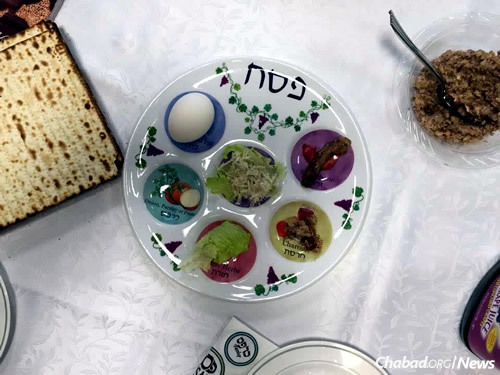

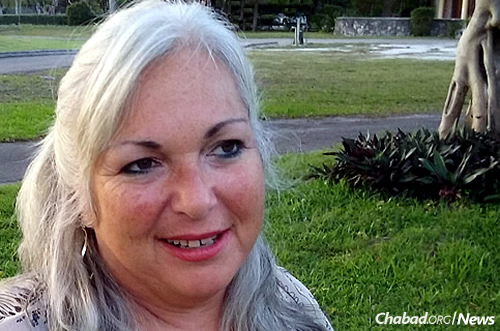
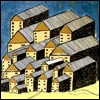





Join the Discussion